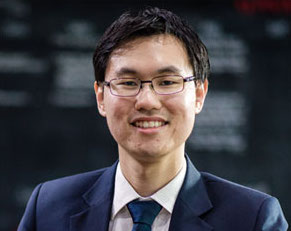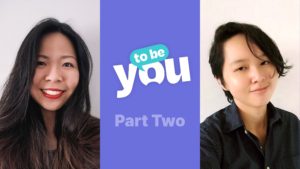You’re at the first official episode of The Good Technologist – good on you! We’re lucky to have gotten Kwok Jia Chuan as our first guest, co-founder of Conjunct Consulting, a non-profit providing consulting services for other non-profits and social enterprises. In this episode, we get to hear from Jia Chuan’s eight years leading the organisation covering topics such as 1) what Conjunct Consulting does, 2) how Technology has become an area of focus and 3) what the future looks like.
—
Transcript:
Rovik: Welcome to ‘A Good Technologist’, a podcast about how innovators are using technology to make our society a better place, in Asia and across the world. This podcast is brought to you by better.sg, a movement to drive ‘tech for good’ based in Singapore. We believe that collaborations across disciplines and diverse people can help technology drive better social outcomes. My name is Rovik, and I’m your host today.
Today’s guest is Kwok Jia Chuan. Co-founder of Conjunct Consulting(CC), a social change consultancy that aims to strengthen social good organisations in Singapore. Through consulting projects, strategic collaborations and corporate skills-based volunteering programmes. Conjunct Consulting has added more than 500 million dollars of value to over 127 of non-profit partners through 233 consulting projects. In his day job, Jia Chuan works in global product policy in Google and he has tons of background in other tech initiatives. In this interview, we talk about Jia Chuan’s personal stories where CC is trying to change and how he has continued the movement to remain relevant. Jia Chuan, welcome to the show.
Jia Chuan: Thanks for having me in the show
Rovik: So I just give a lengthy intro for both you and Conjunct Consulting. Is there anything that you want to add or change about that?
Jia Chuan: So, just to add that Conjunct has about 8 years of existence now. We started in 2011, and yeah, it’s about 8 years. We’ve trained over 1500 volunteers both professionals as well as student volunteers to work with us for different projects with non-profits as well as social organisations. We’ve been doing different projects with almost all of the non-profit organisations in Singapore, whether big or small, we work with any of them as well. So it is a very diverse spectrum of organisations that we’ve worked with: whether children, elderly, people with disabilities. Ultimately, what we want to do is to ensure that these organisations continue to be strengthened so that they in turn can serve their beneficiaries better as well.
Rovik: You must feel like a proud parent. 8 years is a long time.
Jia Chuan: Yea, I refer to it as my baby.
Rovik: So how many full time staff do you currently have?
Jia Chuan: Right now, we currently have 4 staff. We have people who look after finance. We have a full time president who is leading our operations.
Rovik: Very cool. But in a nutshell, you guys do consulting for non-profit and social good organisations. Why consulting? I think it is fascinating that you’ve taken something that is so well-associated with the capitalistic world: managing consulting, strategy consulting. You have big companies like BCG, McKinsey, Bain & Company doing all of them. But you said “I want to focus on a specific sector. And I want to do some good there. What is the story behind that?
Jia Chuan: This goes back to the niche that me and my co-founder Jeremy realised. One thing we realised was that non-profit organisations are very focused on delivering front-end services to their beneficiaries. They often work with their beneficiaries/clients directly. But we thought that there was a bit of a gap in the back-end operations. For example, their finance operations, corporate HR, financial sustainability. And we thought that if we draw on the best practices from the corporate world, these organisations would be strengthened.
Rovik: How old were you when you started?
Jia Chuan: I was about 24. I just finished my national services and started working.
Rovik: Where were you working?
Jia Chuan: I was working in the Ministry of Defence.
Rovik: Non consulting at all.
Jia Chuan: Yes, non consulting at all. Although Jeremy was working in the Bain & Company.
Rovik: And did you remember your first project?
Jia Chuan: Yea. So this is one of the interesting stories. We actually first started out with 10 volunteers looking around finding projects. We just recruited our first batch of student consultants. At that time we were looking for projects – working with non-profit and social good organisations, asking them what are some of the problems that maybe we could help solve. We were talking with people who had been working in the sector for 20, 30 years. People who had been working in the sector for a long, long time. At first, we faced a lot of questions: “Why are you doing this? Why are you young people trying to do this? You young people don’t have any experience in the social sector”
Rovik: You guys are the young punks.
Jia Chuan: I think what swung them was, number one, our sincerity. We are not here to earn money. We are not here to put something on our CV or put something in our GPA or have a testimonial letter. Ultimately, we were bringing together skills for the good of the sector. Second, we think we have good solutions. We think we have the passion for the cause as well as the skills that would make the difference in the organisation. Third, what do they really have to lose if they give us a try.
Rovik: When you first begin, how did you know you are doing the right thing? Because for me, as I think about consulting – half the time I wouldn’t know if the consultant is providing the best advice.
Jia Chuan: I think the answer to that question is that you are never really sure that you are doing the right thing. But ultimately, as you grow and learn, you gain experience from it. And from there, you continue to iterate, to bring your best practices to people. So what you really do is after cycles and cycles of projects, I think we are in our third cycle now, we have a corpus of knowledge, corpus of best practices. When people come to us and say, hey, we have problems and we say, “look, we’ve solved these problems for a number of different organisations before, we can help you.”
Rovik: So in your opinion, or maybe in your experience, when things don’t go well, what are the reasons for it? And when things do go well, you know, on the converse, what are the reasons for those?
Jia Chuan: Some reasons could be the organisation not having bandwidth to execute what we have proposed to them. But typically speaking, we’ve had a good amount of organisations that have been able to execute, and have seen impact from there. Sometimes there are certain short term circumstances, for example: somebody had left or maybe they had to divert their funds to other initiatives that were more pressing. These are common reasons. And we say, ‘Look, these are things that you can keep in your drawer. Ultimately, these solutions continue to be relevant going forward. And when you have time and attention for it, go ahead and execute them. If you need us, we are always just a call away’. Sometimes, the solutions we have provided are things that they might not be ready to adopt. For example, going back to technology, we tried to say these are potential off the shelf technologies that they could use. But sometimes, the organisation would say ‘We need more training to do that. We need to get our staff ready for it’. So again, I would say it’s a question of time. It’s a question of resources. Ultimately, once those two conditions are met, often we see impact being created.
Rovik: I like how you’re talking about technology, because that is the theme of the show. I am very interested in how organisations that aren’t really positioned from the beginning tothink about technology when you introduce technology as a potential solution, or part of a solution. How do people react to that? Does it always entail success?
Jia Chuan: So when we first started in 2011, one thing we realised was that technology was not something that was very much talked about in the non-profit and social good sector. People are looking at us and saying “oh, what is it? What’s a cloud? What is a cloud base?”
Rovik: Yeah. I still hear that by the way. It’s 2020.
Jia Chuan: There has been a lot of discussions around technology in line with Singapore’s drive to be a smart nation. Now, even the non-profit sector and social sector realise the need to evolve. NCSS, the National Council of Social Service, and VPC National Volunteer financial Council, they’ve been very active at pushing technology initiatives down to the nonprofit and the social sector. We’ve had capability funds set up to encourage technology adoption. We’ve had different forms of centralised technology that’s been shared with nonprofits and social organisations as well. The discussion on this has advanced immensely over the past eight years, since we’ve been in space. For us we see technology as a means to a certain end. Ultimately, what we want is to strengthen organisations so that they can impact their beneficiaries better, as I said earlier. Technology can be a force multiplier for organizations that may, for example, still be resorting to pen and paper. Or it could be something that actually results in increased productivity, better coordination, better volunteer management. So the traditional buckets that we see are things like HR capabilities, volunteer management, financial sustainability – technology is something that actually enables and empowers new approaches for the organisation.
Rovik: Yeah. And I guess that at the heart of it, you’re also emphasising the core of what they do at the end of the day, right? They’re not trying to be technology organisations, they are trying to create impact in the way that they are. Which is really cool, because I think, I also feel like there’s probably a feedback loop between your value to them, but also their value to your organisation. Can you talk a bit about how your movement/organisation has grown from experiences with such organisations?
Jia Chuan: I think one thing to remember, and this is an important thing to remember in the social sector, is that the beneficiary sometimes may not be familiar with technology themselves. So I always remember this story: one time we had told the organisation to use Google Forms. And they looked at us blankly, and said “but half of the beneficiaries do not have a Gmail account. How are they going to use Google Forms?..”
Rovik: That is a good part.
Jia Chuan: “…And half of them don’t understand english. How are they going to use a survey like that?” How do we adapt for some of these needs? Some people may be illiterate, some people may not have internet access at all. How do you use technology as an effective enabler in these circumstances? So it’s very contextual. And I think often it actually takes a deep dive into the organisation’s needs, the organisation’s capabilities, and to understand the needs of their beneficiaries ultimately. I think that’s where the Conjunct comes in. That’s where we try to go into the grind, we go do the work of understanding their beneficiaries’ needs, proposing solutions that are contextual and relevant to the organisation. Ultimately, as I said, technology is the means to the end from there. And I think what we’re seeing is that nonprofits and social organisations don’t need to start off with very complex technologies. They can use things that are off the shelf, they can use things that are more understandable, for example things that have multilingual support which is important for the beneficiaries. So what we really want them to do is use simple technologies to achieve their answers. And that’s a start. They can move on to more complex needs afterwards.
Rovik: Cool. So here’s a candid question. So consulting is a very glitzy profession, especially for college students. And I can totally imagine that when college students get an opportunity like Conjunct Consulting, they see the opportunity to learn core skills in consulting and also clock some social good karma? How do you filter the people who are actually there to impact? And as a second order question, how do you train them to actually deliver value in the way that you want them to?
Jia Chuan: So your second question is, for me, the answer to the first question. We actually put our prospective student volunteers, or student consultants as we call them, through a very rigorous process. So the students have to be trained for a semester training in the university,, like NUS, NTU, and SMU, to learn basic consulting skills. They learn the context of the social sector in Singapore, how they can try to create impact. They learn about case studies, about problem solving skills, how to present things like that. At the end of it, we put them through a case camp, and then we select people who have shown potential. So that’s really one filter. And I think, once we go into doing the projects, it’s actually quite a heavy time commitment coming from students. They’re expected to do about 10 to 15 hours a week. I’ve heard many stories about our student consultants, you know, staying up all night doing things, even before they’re to go for their final exams. So, ultimately, it’s a bit of a self filtering mechanism there. If you’re not passionate for the cost, you’re not passionate for the project, you’re not gonna find it fun, and you’re not gonna find it meaningful and will find something better to do for your time.
Rovik: I imagine that all of these great moments were also accompanied by some struggle. So what were some of the key challenges you faced in either building Conjunct, or even some of the projects that you guys may have had?
Jia Chuan: I’ll be frank, keeping Conjunct going is a continuing struggle that we continue to face. Typically, we are not an organisation that attracts donors, per se. We tried running donor campaigns before, and we realised that our story is not a traditional nonprofit story, it doesn’t sell that way. But I think that’s where I think we have to be very conscious that we are on our own, and we have to make sure that our operations continue to run sustainably. On the project side, needs are evolving. And we need to continue to think about how to meet these needs. We started with a few buckets: traditional strategic planning, financial management. For example, seeing technology becoming an increasingly important topic and having people come to us to say, “Can you help us with technological needs”. And we say, “Okay, we’re thinking seriously about how to do that”. So we have a small hackathon team of people who are working out potential solutions. Say, for example, a common survey to the max out the most common needs for like, nonprofit bed, nonprofits and beneficiary, some people look at maybe like geolocation thinking about where they can put events, using Google Maps – to think about how they can pin events down. So these are things that we’re experimenting with. But we think it’s important, because changes only get more frequent.
Rovik: These are project agnostic initiatives that are happening within Conjunct.
Jia Chuan: So the idea actually didn’t come from me, it actually came from a few volunteers who had finished a few cycles of Conjunct projects. And they said, “Look, this is something we see as a need. What if we could build common tools for nonprofits. What if we could build simple projects that people could just go and rely on, and maybe open source the code down the line for people to improve on?” And I said, “Okay, that’s something that sounds pretty interesting. Why don’t you guys try it out and see what we can do. Just go ahead and try, experiment, see what comes up as well”. And they came back after a few months, said “, we have like these three or four ideas’, and I said, “Yeah, why not show them to our audience of nonprofits and see what their reaction is”. And the feedback was really good. Some ideas were off the mark, and the nonprofit didn’t think that they were relevant. But other ideas, they were really excited by. For example, one of the biggest needs was having an easy way to track volunteers coming in and out of their facility. Now, most people still do that by pen and paper. So a simple form that might be useful for them to use for tracking. So these ideas that we’re nurturing, trying to develop, and hopefully one day we’ll be able to share with the wider community.
Rovik: Yeah, it’s very cool that you guys are using technology yourselves, because you guys are practicing what you preach. So let’s talk about your day job. So you work in Google’s global product policy team. What does that mean?
Jia Chuan: So essentially, in a nutshell, it’s really about designing policies that protect users. And so really making sure that you know, ultimately, when people use Google products, they are safe. They are protected from things like misinformation, they’re protected from things like content abuse.
Rovik: Cool. All right. This is the last part of the show. We’re gonna ask you a couple of quick fire questions. Give me your honest candid answers. All right. So first one: who is your biggest personal inspiration for leadership?
Jia Chuan: Bob Iger, who is the CEO of Disney, Well, recently, the ex CEO of Disney. He wrote a book called ‘The Ride of a Lifetime’. It’s an amazing book, I highly recommend people to read it. I think it encapsulates a lot of what I hold dear in terms of leadership. He started off as a janitor, and worked all the way up to becoming the CEO of Disney. And it wasn’t something that was accomplished in a day, it wasn’t something that was accomplished in a year. That’s really something that’s really something good to see. There were three things in his book that I found really relevant to me. The first one was to pursue excellence and continue to make sure that you chase after excellence. Think big, really think about the impact that you can make, whether it’s in your company, whether it’s in your organisation, or whether even across the world. The second thing is investing in people and trusting them a lot. Ultimately, people coming together can be a greater sum of its parts. I think that’s one thing I’ve seen personally in Conjunct. That’s something that I really, really believe in. I think the third is about being nice, creating a culture. Why? Because psychological safety allows people to come together and share their ideas in a spirit of openness, sharing ideas, and in the spirit of empathy. And then after that, coming together and achieving great things.
Rovik: Cool. What are some advice that you would have given to yourself 10 years from now?
Jia Chuan: I think the biggest thing that I would say is execution matters. So, it’s about executing at number one quality, executing well. Ultimately, you are what you do. The second advice is executing in focus. You can do everything out there in this world. What are the one, two or three things that you really, really want to make a dent in and go from there. The third one is executing consistently. You can execute well, you can execute in focus, but if you don’t do it consistently, it’s going to fade away. Ultimately, I’d say execution matters and executing focus, quality and consistency.
Rovik: And I was told that you were previously part of Singapore’s smart nation office. What is a smart nation?
Jia Chuan: If I were to answer that in just one line, it’s really about transforming Singapore technology and really improving that lift experience for people and businesses. Whether it is for payments, whether it’s for people interacting with the government, whether it’s people being able to fill a form digitally that they could only do by pen and paper previously. That’s what this foundation is about. It’s really about improving people’s lives.
Rovik: Well, that’s all I have Jia Chuan. You are a great guest. Thanks so much for coming on the show. I’m looking forward so much to seeing more work Conjunct Consulting has installed for it. Do you have any last words for our audience?
Jia Chuan: Thank you so much for inviting me. I think that better.sg is a great initiative, really looking forward to see what you guys are doing








